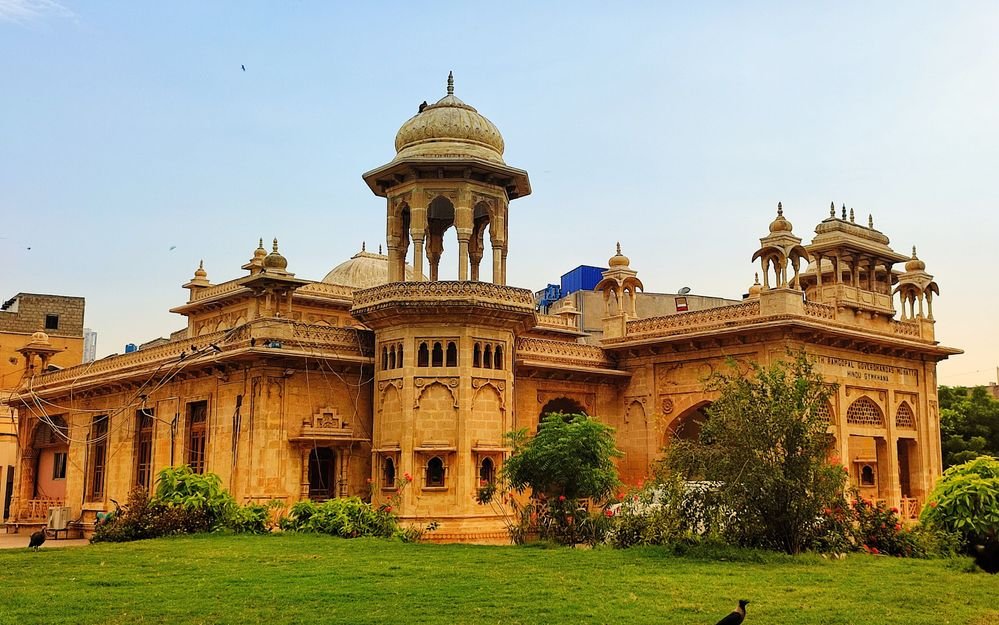Once celebrated as the country’s premier hub for theatre and music education, the National Academy of Performing Arts (NAPA) in Karachi now finds itself in the spotlight for all the wrong reasons.
Known for its rigorous training programs and its role as a cultural catalyst, NAPA was long considered a beacon for aspiring performers—a space where creative expression was nurtured, respected, and celebrated.
Today, however, the academy is grappling with internal crisis. Allegations of mismanagement, academic restructuring, and declining standards have cast a shadow over its reputation. The crisis, insiders say, began with the removal of veteran teachers and significant changes in academic structures, which many believe compromised the quality of education and training.
For students, especially those in their third semester of the Theatre Department, the situation feels like a crossroads. Some feel compelled to abandon their studies altogether, while others endure what they describe as harassment, bullying, and institutional neglect. Their frustration has now taken the shape of organized resistance.


In an unprecedented move, the third-semester students have issued a list of demands, calling for the revival of the NAPA Repertory Theatre (NRT), a return to the trimester system, and the appointment of seasoned professionals to lead the academy back to its former glory. They argue that these changes are crucial to restoring confidence in the institution and ensuring future graduates receive the education they deserve.
But their pleas come with a warning. If their concerns are not addressed, students say they will begin a protest this Monday, an act that could thrust Pakistan’s leading performing arts academy into deeper controversy, forcing its leadership to confront long-simmering tensions.
Once a haven for creativity and artistic growth, NAPA now faces a defining moment: Will it reclaim its place as a cultural powerhouse or crumble under the weight of its internal crisis?
“We joined NAPA because of the legendary artists like Zia Mohyeddin (late), Rahat Kazmi, and Talat Hussain (late), who had the ability to pass on their wisdom to us. Unfortunately, we were mistaken,” said one student.
NAPA’s original academic structure included a three-month trimester system with high-quality teachers and the NAPA Reparatory Theatre (NRT), which was established by figures like Zia Mohyeddin, Rahat Kazmi, Talat Hussain, Arshad Mehmood, Anjum Ayaz, and Zain Ahmed. Zia Mohyeddin also served as the artistic director of this company.
However, the NRT was dissolved by NAPA’s Board of Directors (BoD). Despite NAPA continuing to produce plays under the banner “NAPA Presents,” there is no artistic director overseeing the quality of productions, leaving the Head of Department (HOD) to make all decisions, even though this is not her designated responsibility. The NRT which once provided a platform for students to perform both during their diploma and after graduation, is no longer in place.
When the students entered NAPA in 2023 for the three-month course, everything appeared to be running smoothly. “We were excited after completing our first trimester, learning from legendary teachers like Khalid Ahmed, Fawad Khan, and Paras Masroor. At the time, the HOD was Khalid Ahmed, and the COO was Junaid Zubairi,” one student recalled.
However, things began to deteriorate when the BoD suddenly replaced Khalid Ahmed with Afreen Sehar as the new HOD. This marked the start of the decline in the academy’s standards.
The students were informed that the academy would transition from a diploma program to a six-month degree program, with two semesters per year. Soon after, several teachers resigned, and the students began to receive warnings and notices of ‘misbehaviour’ from the HOD.
Reports of bullying, harassment, and mistreatment by the HOD surfaced, leading to a peaceful protest by the students. The BoD, instead of addressing the students’ grievances, took superficial action by limiting the HOD’s powers. As a result, many students from the second and third years left NAPA, feeling that the BoD had failed to deliver justice.
The quality of academics further declined as the students found themselves studying ten subjects per semester, often with little time to properly engage with any one subject. Meetings with the HOD were rushed, with decisions being made in just five minutes, leaving the students with no time to adequately plan for the upcoming semester.
“We repeatedly told her that the semester system was not working, but our concerns were ignored. Plays were underdeveloped, and the quality of all subjects suffered,” one student explained.
The semester break, initially scheduled for two months, was extended to three months, during which no communication from the management was provided. Despite this extended break, the management claimed that NAPA would reopen on September 30th, offering the flimsy excuse of rain and delays in hiring faculty.
“This is not our problem. These issues should have been resolved during the two months of the break,” a student asserted.
The usual semester calendar, which is typically shared two weeks before the start of the semester, was also not provided this time. As a result, many students, especially those from other cities, arrived in Karachi only to find themselves with no clear direction. They now feel they are wasting their time, resources, and energy.
Frustrated with the lack of response, the students have sent emails to the BoD and voiced their concerns in the official WhatsApp group, but have received no replies. The group has been restricted to admin settings, making communication even more difficult.
“The management’s corruption has forced us to take action. We are starting a peaceful protest this Monday,” they announced.
The students demanded restoration of the trimester system, hiring of professional and experienced teachers, not just administrators, to manage the academy, the revival of NAPA Repertory Theatre and accountability for those responsible for the decline of the academy and the removal of HOD and the reinstatement of the COO.

Rana Haider Ali is a student at the National Academy of Performing Arts, Karachi, pursuing studies in theatre.

The High Asia Herald is a member of High Asia Media Group — a window to High Asia and Central Asia

